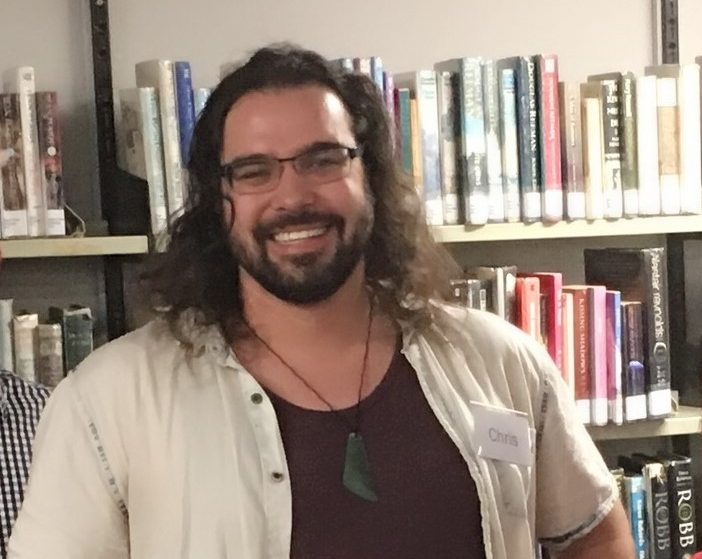Hamilton man helps with refugee integration
Chris Beattie enjoys his relationships with his refugee family.

“They call me brother, they call me son, I call them uncle and auntie.”
Chris Beattie is talking of his refugee family from Pakistan, who had been living in a refugee camp in Thailand for the past five years. Chris is now working with them as a member of the Red Cross, after they got residence.
The son of the refugee family is in high school, the father is suffering PTSD.
Chris is helping them to deal with NZ paperwork, and authorities.
He is incredibly concerned about the number of refugees, and the lack of adequate resources provided for their humanitarian crisis.
He describes asylum seeker camps as prisons, and refugee camps as the same, with the one distinction being that refugee camps offer work for “well below minimum wage”.
He emphasizes the importance of organizations such as Red Cross; even what he is able to do while living in NZ.
“The Government’s sole responsibility once a refugee family gets accepted to NZ is to find a house with enough rooms for the family.”
The Red Cross’s responsibilities, however, are to stay involved with the family for up to six months and help them deal with NZ authorities.
Chris discusses the competencies of his refugee family, who he describes as “more motivated than any student he has ever had”.
They now, as residents, can get employment in New Zealand, and can also receive government funding for study.
Chris envisions the mother of his family going into charity work, and the father into business.
The mother is an incredibly compassionate person he says, and the father was already doing business in Pakistan.
Chris contrasts his refugee family living under persecution and war in Pakistan, with living in NZ which he refers to as “heaven on earth”.
The daughter is incredibly happy now, he says.
“She cries, but not because she is sad. She’s so happy she is in a place where she will be safe, where she can have her own cell-phone, where she won’t be threatened every time she walks outside.”
He recounts the son’s fear of authority : “he’s not certain how he should behave, he’s not certain if he should keep his head down like he did in Thailand.”
Chris points to Red Cross statistics which show refugees have a lower than average crime rate; explains he has come across refugees too scared to return library books late because of a fear of authorities.
Fear of Authority he implies, is a primary inhibitor of Refugees ability to function in society.
Chris’ work helps create a more universal idea of what it is to be Kiwi, shows refugees Kiwi values, and way of life.
If you are interested, become a volunteer.
redcross.org Migration and refugee-crisis




